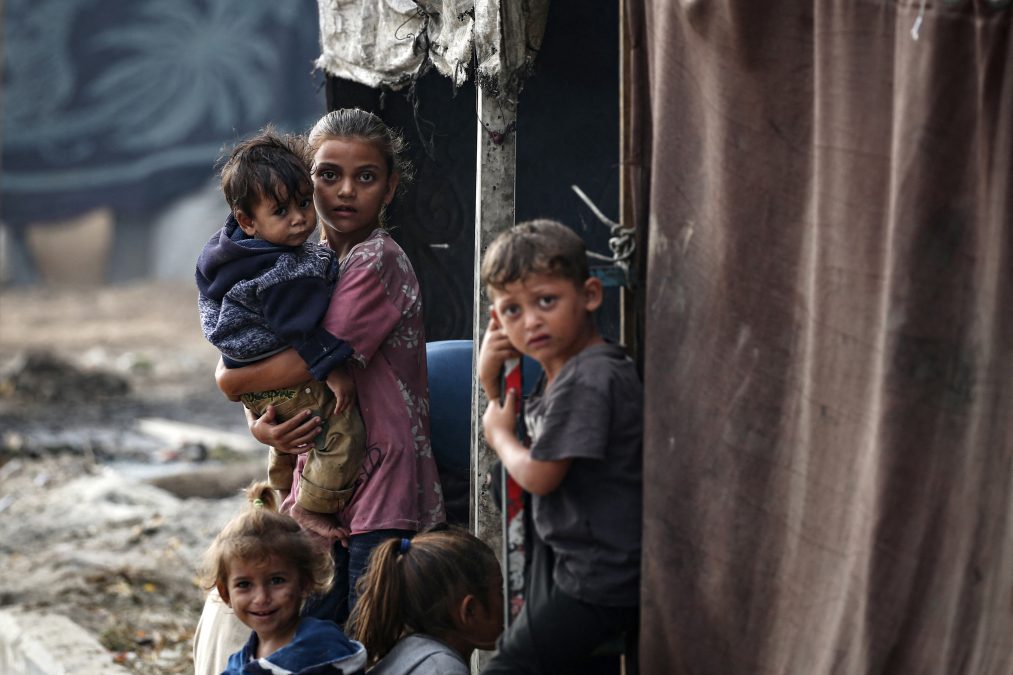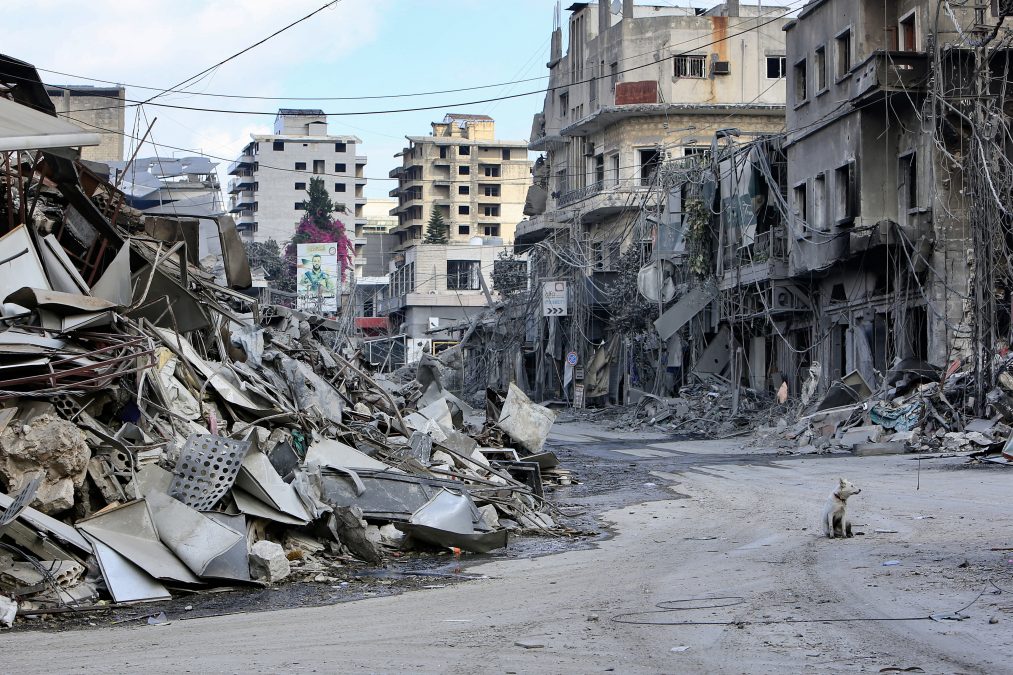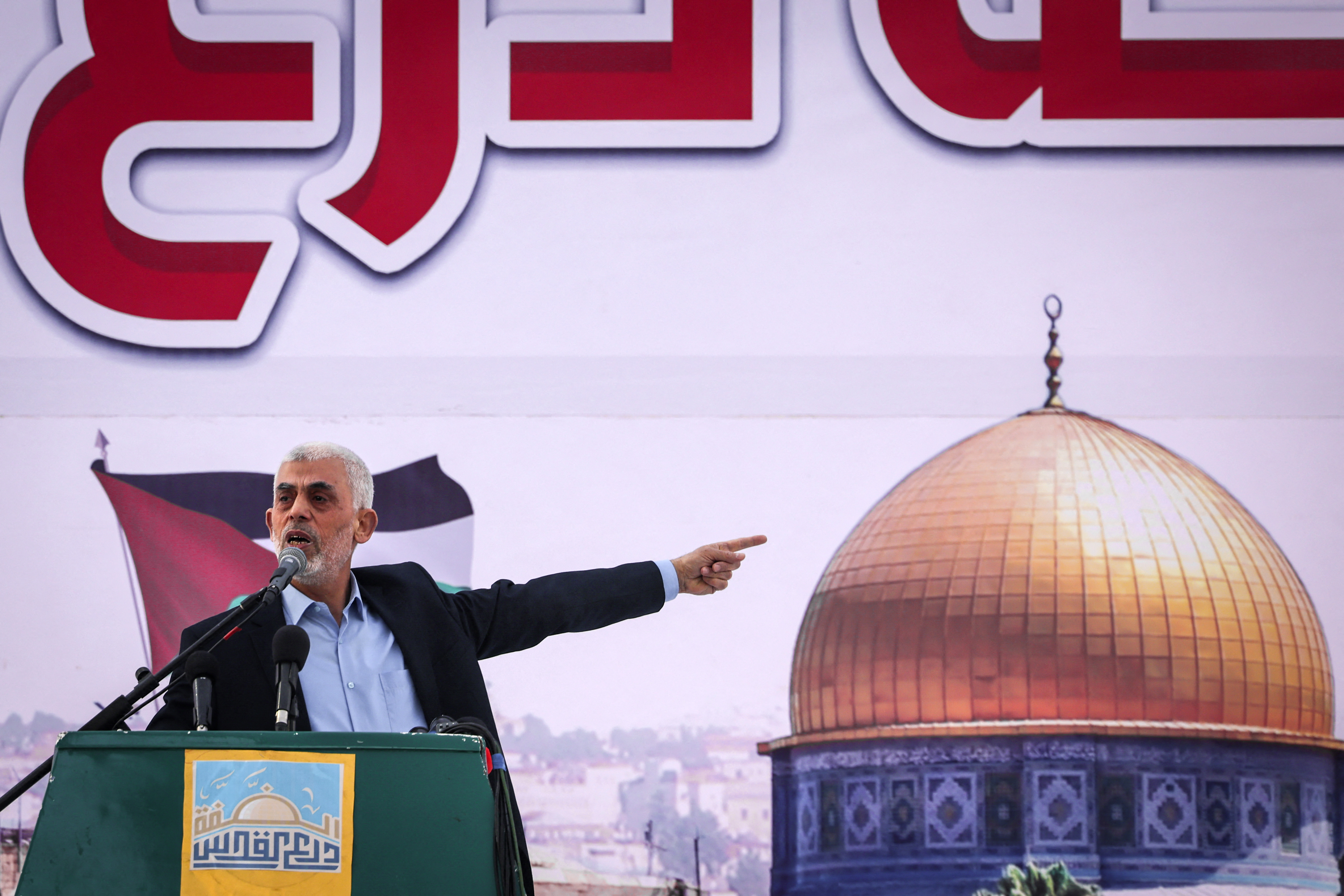Jerusalem/Washington — Israeli Foreign Minister Israel Katz on Thursday announced the killing of Hamas leader Yahya Sinwar, who Israel has accused of masterminding the group’s attack on October 7 last year.
“The mass murderer Yahya Sinwar, responsible for the massacre and atrocities of October 7th, was eliminated today by IDF (Israeli military) soldiers,” claimed Katz in a statement sent to the media.
In Washington, the Republican speaker of the US House of Representatives on Thursday applauded the killing of Hamas leader Yahya Sinwar, saying his death had brought “relief” to the people of Israel. “Sinwar’s life was the embodiment of evil and marked by hatred for all that is good in the world,” Mike Johnson said in a statement. “His death brings hope for all those who seek to live in freedom, and relief to Israelis he has sought to oppress.”
WHO WAS SINWAR?
After a career in the shadows, spent in Israeli prisons and the internal security apparatus of Hamas, Yahya Sinwar emerged as the leader of the Palestinian group after helping ignite a full-blown war that has engulfed the region.
Sinwar was among the Hamas leaders accused of masterminding the group’s attack on Israel on October 7 last year and is said to have been hiding in a network of tunnels the militants built under Gaza.
Sinwar was the head of Hamas in Gaza during the October 7 attack, but rose to become the group’s overall leader in August after the killing of political chief Ismail Haniyeh.
The killing of Haniyeh in Tehran on July 31 has been widely blamed on Israel, which has never claimed the assassination.
Also in July, Israel said it killed Hamas military leader Mohammed Deif, but the group never confirmed his death. “Every Hamas member is a dead man,” Israeli Prime Minister Benjamin Netanyahu said last year after the October 7 attack sparked the Gaza war.
The Hamas attack resulted in the deaths of 1,206 people in Israel, according to an AFP tally based on Israeli official figures that include hostages killed in captivity.
Israel’s retaliatory campaign in Gaza has killed 42,438 people, the majority civilians, according to data from the health ministry in the Hamas-run territory.
The October 7 attack probably a year or two in the planning, “took everyone by surprise” and “changed the balance of power on the ground”, said Leila Seurat of the Arab Centre for Research and Political Studies in Paris.
Sinwar was a security operator “par excellence”, according to Abu Abdallah, a Hamas member who spent years alongside him in Israeli jails.
“He makes decisions in the utmost calm, but is intractable when it comes to defending the interests of Hamas,” Abu Abdallah told AFP in 2017, after his former co-detainee was elected Hamas’s leader in Gaza.
Born in the Khan Yunis refugee camp in southern Gaza, Sinwar joined Hamas when Sheikh Ahmad Yassin founded the group around the time the first Palestinian intifada began in 1987.
Sinwar set up the group’s internal security apparatus the following year and went on to head an intelligence unit dedicated to flushing out and mercilessly punishing — sometimes killing — Palestinians accused of providing information to Israel.
According to a transcript of an interrogation with security officials published in Israeli media, Sinwar professed to have strangled an alleged collaborator with a keffiyeh scarf in a Khan Yunis cemetery.
A graduate of the Islamic University in Gaza, he learned perfect Hebrew during his 23 years in Israeli jails and is said to have a deep understanding of Israeli culture and society.
Sinwar was serving four life terms for the killing of two Israeli soldiers when he became the most senior of 1,027 Palestinians released in exchange for Israeli soldier Gilad Shalit in 2011.
Sinwar later became a senior commander in the Ezzedine al-Qassam Brigades, the military wing of Hamas, before taking overall leadership of the movement in Gaza.
While his predecessor, Haniyeh, had encouraged efforts by Hamas to present a moderate face to the world, Sinwar has preferred to force the Palestinian issue to the fore by more violent means.
Sinwar is said to have strived for a single Palestinian state bringing together the Gaza Strip, the occupied West Bank — controlled by Mahmud Abbas’s Fatah party — and annexed east Jerusalem.
According to the US think-tank the Council on Foreign Relations, he has vowed to punish anyone obstructing reconciliation with Fatah, the rival political movement with which Hamas engaged in factional fighting after elections in 2006.
That coming together remains elusive, but the prisoner releases resulting from the brief November truce agreement with Israel saw Hamas’s popularity soar in the West Bank.
Sinwar had pursued a path of being “radical in military planning and pragmatic in politics”, according to Seurat.
“He doesn’t advocate force for force’s sake, but to bring about negotiations” with Israel, she said.
The Hamas chief was added to the US list of the most wanted “international terrorists” in 2015.
Vowing in November last year to “find and eliminate” Sinwar, Israeli Defence Minister Yoav Gallant urged Gazans to turn Sinwar in, adding “if you reach him before us, it will shorten the war”.
Earlier, an Israeli security official told AFP that the military was conducting a DNA test on a militant’s body to confirm whether it was Sinwar’s.

Israel’s Defense Minister Yoav Gallant said the country would hunt down “every terrorist”, following the military’s announcement on Sinwar.
“We will reach every terrorist and eliminate them,” Gallant wrote on X.
THE IRANIAN WARNING
In Tehran, Iran’s Revolutionary Guards chief Hossein Salami on Thursday warned Tehran would hit Israel “painfully” if it attacks Iranian targets.
The Syrian Observatory for Human Rights, a Britain-based monitor, said the Israeli raid on the Syrian city of Latakia targeted a “weapons depot belonging to Hezbollah”.
The Israeli military did not comment on the strike when contacted by AFP.
Israel has conducted hundreds of strikes in Syria in recent years, including multiple recent attacks along the Lebanese border that sought to cut off Hezbollah’s main weapons and equipment supply route from Iran to Lebanon.
In Houthi-controlled areas of Yemen, the United States conducted multiple B-2 bombers strikes on weapon storage facilities, according to the US Military and defense department.
The Houthis’ political bureau said “the American aggression will not pass without a response”, and vowed to continue the group’s “support and assistance to Gaza and Lebanon”.
The war in Lebanon has left at least 1,373 people dead, according to an AFP tally of Lebanese health ministry figures, though the real toll is likely higher.
Israeli troops and Hezbollah fighters have been clashing near Lebanon’s southern border, where Hezbollah on Thursday said it hit four Israeli tanks with guided missiles.
Rescue workers affiliated with the Amal party, a Hezbollah ally, in the southern city of Qana were digging through the rubble of several buildings destroyed in strikes this week.
“More than 15 buildings have been completely destroyed, total destruction in a neighborhood in Qana,” said Mohammed Nasrallah Ibrahim, one of the rescuers.
Israel has faced criticism over its strikes in Lebanon, including from its top arms supplier the US.
In northern Gaza’s Jabalia, where almost the entire population is displaced, two hospitals said Israeli air strikes on a school sheltering displaced people killed at least 14 people.
The military reported that it had hit militants.
Some 345,000 Gazans face “catastrophic” levels of hunger this winter after aid deliveries fell, a UN-backed assessment said Thursday, warning of the persistent risk of famine.
Nearly 100 percent of Gaza’s population now lives in poverty, with a “staggering” unemployment rate of nearly 80 percent, the UN’s International Labour Organization said on Thursday.
The impact of the war on Gaza “will be felt for generations to come,” said the ILO’s Ruba Jaradat.
ISRAEL IN LEBANON
In Beirut, Hezbollah lawmaker Hassan Fadlallah said Thursday that the Israeli army was not fully in control of any village in south Lebanon, where the Iran-backed group says it is fighting Israel’s forces at point-blank range.

“Until now, the enemy has been unable to take full control of any village,” Fadlallah told a press conference at Lebanon’s parliament.
Israeli forces just “destroy, shoot and run,” he added, saying Hezbollah fighters are battling troops who have infiltrated Lebanese territory by only a few “meters”.
Hezbollah had said it was engaged in close combat with Israeli forces near the border as videos circulating on social media purported to show Israeli flags raised in Lebanese frontier towns.
AFP could not independently verify the authenticity of the footage.
The clashes follow a year of cross-border fire between Israel and Hezbollah over the Gaza war.
Israel ramped up its bombardment on 23 September and by the end of the month sent ground troops across the Lebanese border.
Israel has repeatedly called for Hezbollah to be pushed away from the border to ensure its citizens could return to northern Israel.
Fadlallah accused Israel of pursuing a “scorched earth policy through the systematic destruction of villages,” particularly near the border with Israel.
He said Israel was “seeking to impose a buffer zone with no people, buildings, fields or trees”.
The war has left at least 1,373 people dead in Lebanon, according to an AFP tally of Lebanese health ministry figures, though the real toll is likely higher.








